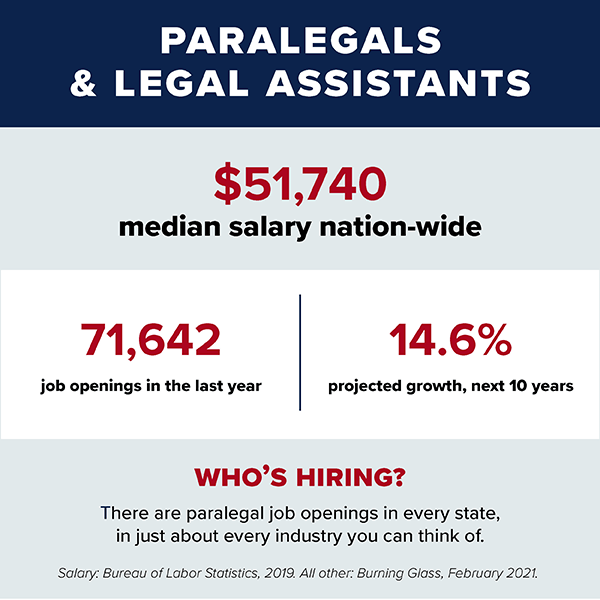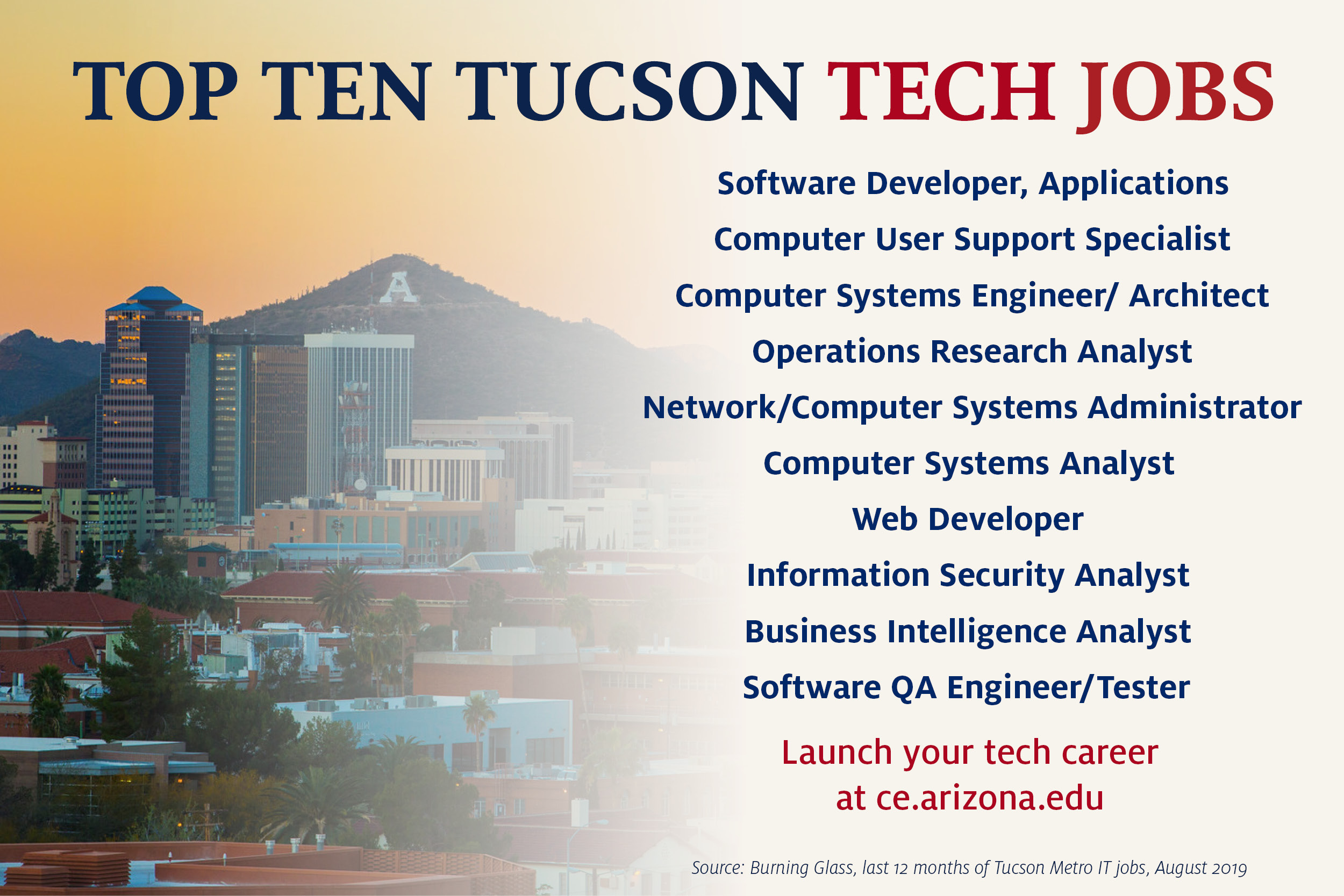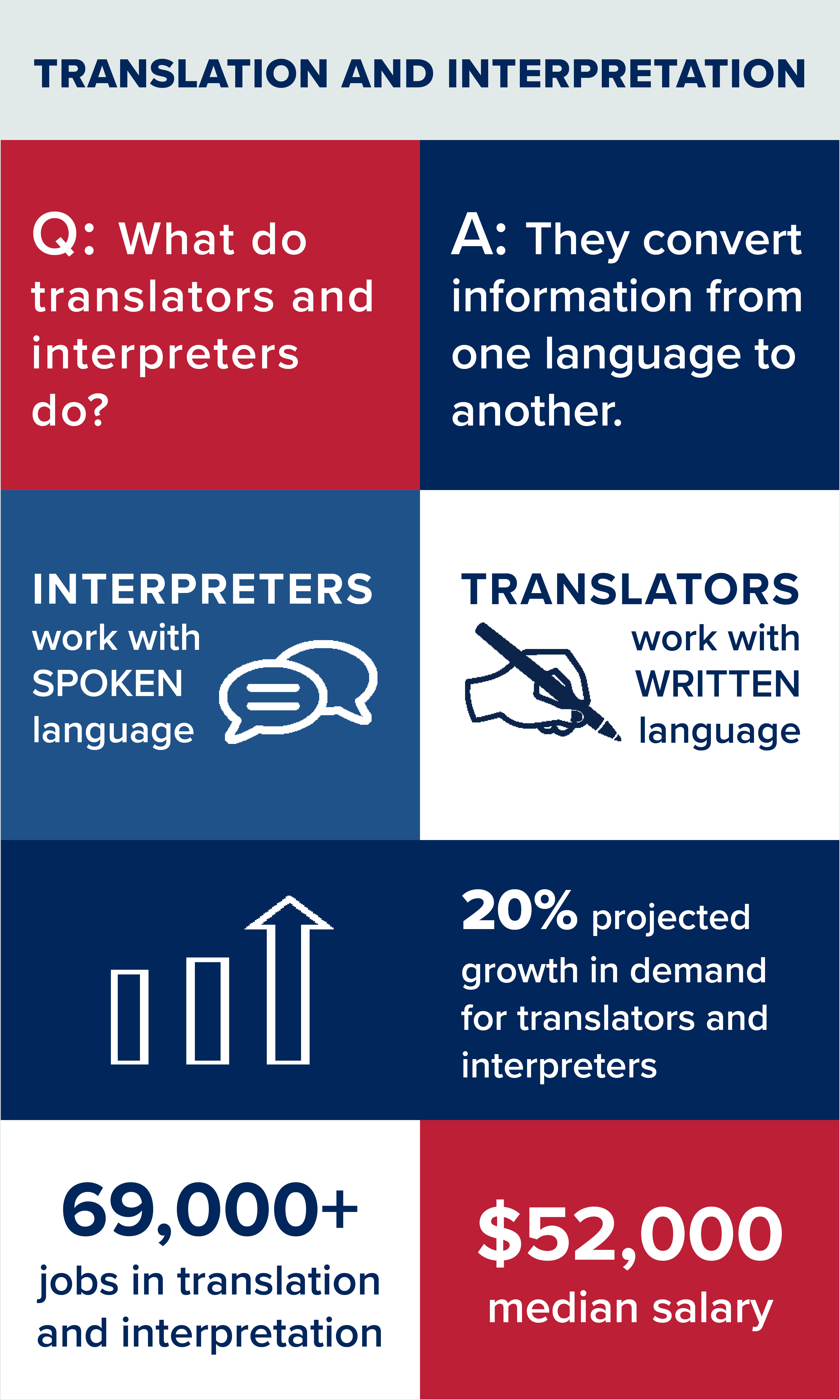Want to Get Certified? Here's What You Need to Know
If you are an experienced professional, earning an industry certification can help you move up in your current career. If you're looking to change careers, an entry-level certification can open the door to starting a new career.
Industry certifications are awarded by a certification body (such as an industry association, trade group or a corporation), usually after successfully completing a certification exam. Most certifications are targeted to a specific skill and experience level, so there may be work experience or education requirements that you must meet prior to taking a certification exam.
Certification Exam Process and Requirements
You can learn more about the examination process and certification requirements for popular industry certifications here:
- American Translators Association (ATA) Certification
- AutoCAD Certified User
- Certified Associate in Project Management (CAPM®)
- Certified Billing & Coding Specialist (CBCS)
- Certified Cloud Security Professional (CCSP)
- Certified Electronic Health Records Specialist (CEHRS)
- Certified Information Systems Security Professional (CISSP®)
- Certified Wireless Network Administrator (CWNA)
- Certified Wireless Security Professional (CWSP)
- Cisco Certified Network Associate (CCNA)
- Cisco Certified Network Professional (CCNP)
- CompTIA A+
- CompTIA Advanced Security Practitioner (CASP+)
- CompTIA CyberSecurity Analyst (CySA+)
- CompTIA Network+
- CompTIA Security+
- Fundamentals of Engineering (FE)
- Intuit QuickBooks Certified User
- Project Management Professional (PMP®)
- SHRM Certified Professional or Senior Certified Professional (SHRM-CP or SHRM-SCP)
The Certified Association in Project Management (CAPM) and the Project Management Professional (PMP) are registered marks of the Project Management Institute, Inc. CISSP is a registered certification mark of (ISC)², Inc.
Ready to Get Certified?
If you're ready to get certified, a certification exam prep class can help you get ready to take your certification exam.
Spotlight on Paralegal and Legal Assistant Careers
Paralegals and legal assistants are in high demand nationwide, with rapid growth projected for the next ten years. If you're interested in starting a career in this growing field, here's what you need to know.
What They Do
Paralegals and legal assistants support the work of lawyers by conducting legal research, drafting documents, and organizing files and other materials.
The specific job duties will often vary depending on the size of the company or organization you work for, as well as the area of law.
For example, a corporate paralegal may help prepare employee contracts and stay up-to-date on regulations that affect their industry. A litigation paralegal may focus on helping lawyers prepare for trial by gathering and summarizing case facts, scheduling witness interviews, and researching relevant laws and regulations.
Where They Work
There are paralegal job openings in every state and in a wide variety of industries, making paralegal skills highly transferable. While many paralegals and legal assistants work in law firms, those aren't the only places they work.

Government agencies, corporations, hospitals, the court system and many other employers hire paralegals and legal assistants. In fact, the largest employer of legal support professionals (based on number of job openings) is the U.S. government. Every large company has a legal department, and a legal department needs paralegals and legal assistants.
How to Become a Paralegal
Legal support professional jobs include legal secretary, legal assistant and paralegal.
The specific job requirements vary depending on the employer, but in general these jobs fall on a spectrum: legal secretaries perform more administrative and secretarial duties, and legal secretary jobs generally require less formal education. Paralegals perform more legal duties (such as research), and paralegal job postings tend to require more formal education. Legal assistant jobs tend to fall somewhere in between the other two.
According to the Bureau of Labor Statistics, most paralegals and legal assistants have at least an associate's degree or a certificate in paralegal studies. Some states, including California and New Mexico, have additional education requirements for paralegals.
Ready to start your paralegal or legal assistant career? Check out the University of Arizona Paralegal Certificate Program.
Tucson Named a Top Up-and-Coming Tech Market
If you’re interested in a career in tech, Tucson is a great place to be. The high demand for tech talent in places like the San Francisco Bay Area and Seattle is prompting companies to expand into smaller markets, according to a new report from global commercial real estate services and investment company CBRE.
In its 2019 Scoring Tech Talent report, CBRE ranked Tucson at the top of these “Next 25 Markets” where companies are looking to find new opportunities and tech talent.

According to the report, Tucson tech jobs have grown 90% over the last five years and tech wages grew 29% in that same timeframe.
Top Tucson Tech Jobs
If you're wondering what Tucson employers are looking for, these are the top tech jobs in the Tucson metro area in the last 12 months.

Three Paths to In-Demand Tech Jobs
1. Computer User Support Specialist
Computer user support specialists provide technical assistance to computer hardware and software users.
In entry-level IT help desk jobs like these, 1 in 5 job postings require the CompTIA A+ certification. The CompTIA A+ exams are a globally recognized, vendor-neutral qualifying credential for tech support and IT operations roles. A+ is an entry-level certification designed for those who are looking to start a tech career.
Like many other IT certifications, CompTIA certifications are "stackable," so you can earn additional certifications as you gain skills and experience.
2. Network/Systems Administrator
A Network or Systems Administrator manages the day-to-day operations of an organization's computer networks, including installing, organizating and supporting the hardware and software of these systems. These roles typically require 3-5+ years of experience and often include certification requirements.
Iif you are interested in pursuing a Network/Systems Administrator career, you might explore a CompTIA Security+ certification. This is the most often-requested certification in Network/Systems Administrator job postings. This intermediate-level certification "establishes the core knowledge required of any cybersecurity role and provides a springboard to intermediate-level cybersecurity jobs," according to CompTIA.
3. Web Developer
The University of Arizona Continuing & Professional Education Coding Boot Camp gives you the knowledge and skills to build dynamic end-to-end web applications and become a full stack web developer. New classes start quarterly in the Phoenix Metro area and Tucson.
Learn More
- Check out the top tech certifications in Arizona job postings
- See all IT professional development classes
Closing the Cybersecurity Skills Gap: New Security Training Program
Cybersecurity professionals help safeguard our most important information - from sensitive government and military data to corporate intellectual property to our individual personal, health and financial data.
But there is a huge gap between the need for cybersecurity professionals and the number of people who have the skills to fill those roles, according to the (ISC)2 Cybersecurity Workforce Study:
(ISC)2 estimates that there is an unmet need for almost half a million cybersecurity professionals in North America alone. The study also found that almost two-thirds of organizations reported a shortage of cybersecurity staff.
A team from the University of Arizona College of Electrical and Computer Engineering launched a new program to help close this cybersecurity skills gap: the all-new fully online University of Arizona Network Security Training.
Hands-On Practical Security Training
Network Security Training is designed by Dr. Salim Hariri and a team from the NSF Cloud and Autonomic Computing Center at the University of Arizona. Dr. Hariri is a world renowned researcher in the area of cybersecurity, distributed computing, and autonomic computing.
While the program is fully online, Dr. Hariri and his team wanted to make sure that participants who complete the program would be ready to apply and use what they learned. That's why the courses provide hands-on practical experience in using network and computer monitoring tools, intrusion detection and prevention tools, and other cybersecurity tools, in addition to teaching the fundamentals of cybersecurity.
The skills taught in the program map directly to the National Initiative for Cybersecurity Education (NICE) Cybersecurity Workforce Framework, a collaborative effort between the private sector, government and academia designed to improve cybersecurity education, training, and workforce development.
The Network Security course will launch in January 2020. Additional courses will be launched in later months.
This noncredit professional development program is open to technical professionals in any location. You do not need to an admitted and enrolled University of Arizona student to participate. You will need to submit a short form through the office of Continuing & Professional Education describing your technical background and knowledge before registering for the course.
High-Growth Jobs: Translators and Interpreters
Looking for a high-growth job? Translators and interpreters are increasingly in-demand nationwide!

If you are English-Spanish bilingual, you can turn your language skills into a new career with a Certificate in Spanish/English Translation or Spanish/English Interpretation.
Building Bridges to New Engineering Careers
Bill O'Brien loves water. As the owner and Principal Engineer of NextGen Engineering, he specializes in sustainable water resource and civil engineering projects. "Put me in a wadi or a barranca or an arroyo, and I'm happy," he says.
But that's not the only thing he loves about his work. He says that people who care about water also tend to care deeply about their communities. And to him, "people are what count in the engineering world, more than the projects we build."
Training the Next Generation
NextGen Engineering's mission is two-fold: planning and implementing sustainable engineering projects and training the next generation of water resource professionals.
NextGen's training programs include an active internship program and a Fundamentals of Engineering (FE) Exam Preparation class.
Passing the Fundamentals of Engineering exam is the first step in becoming a licensed professional engineer (PE). The 15-week FE Exam Prep course includes lectures, weekly study sessions, and practice exams to prepare participants to take the FE exam.
Everyone is Welcome
In Arizona, FE Exam applicants must have a 4-year engineering degree or 4 years of documented work experience in the field.
While many FE Exam Prep class participants have been University of Arizona College of Engineering students or recent graduates, those with non-U.S. engineering degrees or work experience are also welcome in the class.
In fact, one of the reasons Bill created the FE class was to help refugees and immigrants who were engineers in their home countries get re-certified as engineers in the U.S.
When he saw experienced engineering professionals unable to work as engineers after immigrating here, he wanted to help:
"It just breaks my heart sometimes...all the brains of a good engineer and they're pushing carts at Walmart. All that technical knowledge and experience is just being lost."
Bill's answer was to develop the FE Exam Preparation class. The FE Exam Prep class helps the next generation of engineers take an important step towards getting their engineering license, whether they have a U.S. or international engineering degree or experience.
Building Bridges, Not Walls
The seed for Bill's desire to work with refugees was planted while working in the Middle East for over a decade. While he was there, he learned to speak Arabic. He also saw first-hand what life was like for those living in refugee camps in Lebanon and Jordan.
Because of his language skills and experience living and working in the Middle East, Bill says it has been a natural fit to welcome refugee families to Tucson.
Bill says that when people arrive in a new country there are very few "bridge people" to welcome them and help them navigate an unfamiliar culture. He continues:
"When you're at the end of your life and look back... were you a bridge person or did you build walls? We definitely want to be bridge people. We want to welcome people and help them get started."
Bill and his wife are long-time volunteers in the Tucson refugee-serving community. The initial three FE Exam Prep classes were held at the Refugee Resource Center, and were co-written by Randiesia Fletcher, the Co-Founder of the Refugee Resource Center.
Learn and Save: New Lower Prices for Online Classes
Starting in July, we are excited to offer reduced prices on more than 20 continuing education programs.
You can save hundreds of dollars on these courses:
- Any Two CompTIA+ Courses
- Certified Electronic Health Records Specialist (CEHRS) Career Prep
- Cisco CCNA and CCNP
- Cisco Certified Network Associate (CCNA)
- CompTIA A+
- Gas Turbine Power Generation Certificate
- Grant Writing Fundamentals
And many more class prices have been reduced. So now you can learn new job skills for less!
New Online Environmental Science Certificate Program
There is a gap between scientific information generated by researchers and the needs of society to address today’s increasingly complex environmental problems. And there has been frustration on both sides: researchers want to see the result of their efforts being used, and decision makers need relevant information to assist in planning and practice.
A unique new University of Arizona training program is designed to close that gap: Transdisciplinary Environmental Science for Society (TESS) is a three-course online program created by University of Arizona faculty Dr. Dan Ferguson, Dr. Gregg Garfin, Dr. Mónica Ramirez-Andreotta and Dr. Connie Woodhouse.
Science for All Our Sakes
Environmental issues such as climate change, resource management and environmental contamination don’t have easy solutions, says Dr. Mónica Ramirez-Andreotta:
“You can’t solve these challenges by yourself. And you can’t solve them with one discipline, and you can’t solve them with one type of stakeholder. Though it sounds simple to bring people together, it is not.”
In their own work, Drs. Ferguson, Garfin, Ramirez-Andreotta and Woodhouse saw that collaboration across academic disciplines and between science and practice was critical to successful environmental problem-solving. They also saw that bringing people together to solve problems isn’t easy, and there was little or no training available to teach people how to do so.
They designed TESS to equip participants with the practical skills they need to improve collaboration between scientific researchers, leaders, community members and others who want to address society’s increasingly complex environmental problems.
About the Program
TESS is a three-course online program. The first TESS course, Fundamentals of Transdisciplinary Research, runs from September 23-October 20, 2019. This introductory course teaches participants about:
- the role of transdisciplinary environmental research, a problem-solving approach that includes collaboration between researchers and stakeholders
- how to engage in collaborative, inclusive environmental problem-solving
Upcoming TESS courses will cover strategies for collaborative research and communication skills.
Participants who successfully complete each course will receive a digital badge and will be eligible to receive 2 continuing education units (CEUs) per course.
Fee: $500 per course (10% discount available for military and for University of Arizona faculty, staff and students).









